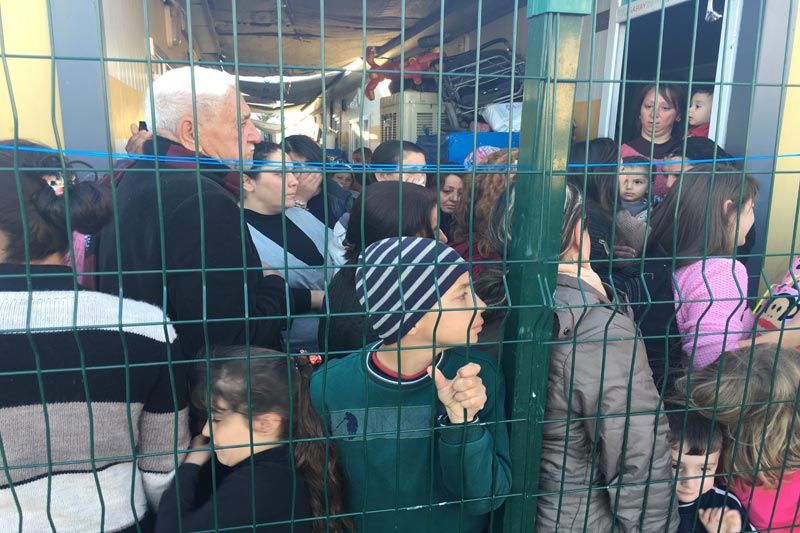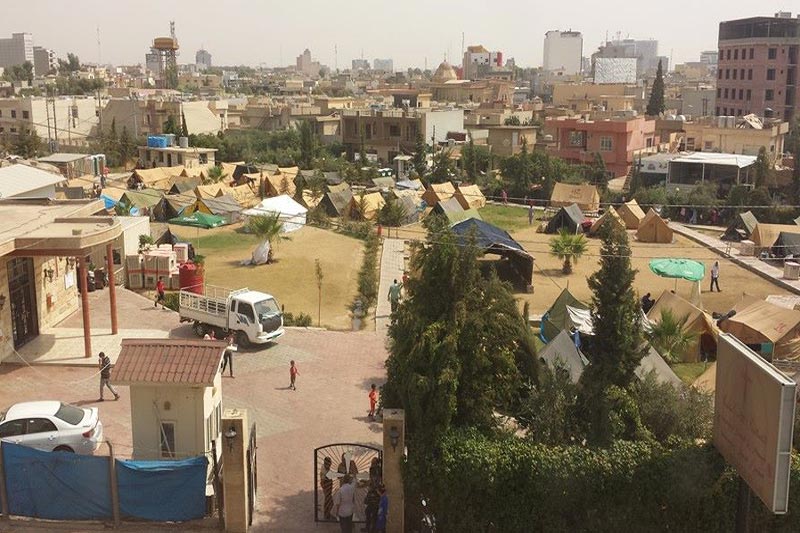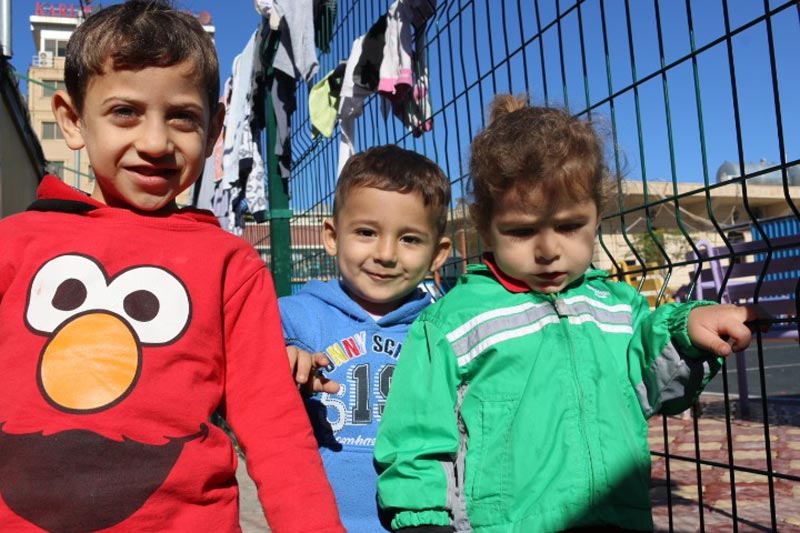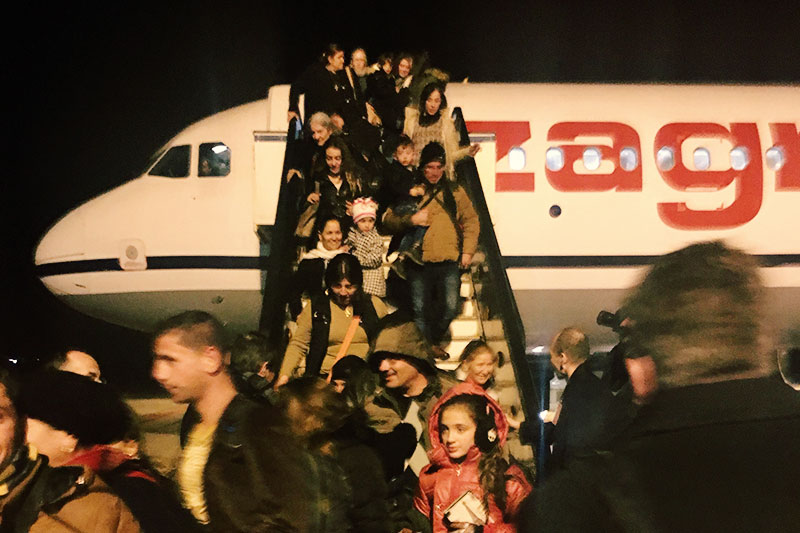They had been surrounded by ISIS for months.
The siege continued to build as fighters managed to cut off water, electricity, and the flow of goods into the city. Residents of Qaraqosh, the largest Christian-majority city in Iraq, grew more and more tense living in the shadow of ISIS.Although Kurdish troops had been holding back the ISIS horde, fear in the minds of Qaraqosh residents continued to mount.
ISIS regularly taunted the Christians, threatening that they would soon have to choose: convert or die.
To be fair, there was one other option, and that is to take the chance that ISIS would feel generous and not kill the men or take the women as sex slaves. If you were lucky, ISIS would only extort a crippling tax from each family to live under the group’s “protection.” Having seen the carnage ISIS left behind elsewhere, Qaraqosh residents had little doubt what ISIS had in mind for them.
Then, the day they all feared arrived. On August 9, 2014, ISIS started shelling Qaraqosh. The rockets killed three residents: one woman and two children. After holding them off for months, Kurdish fighters (Peshmerga) advised the town’s leadership that they could no longer protect the city and planned to withdraw leaving Qaraqosh open to ISIS assaults. It was at this point that the church bells began to ring, the agreed upon signal that it was time to leave. Moving as quickly as possible, approximately 50,000+ residents began the heart-breaking process of grabbing their most valuable possessions, piling into vehicles, and fleeing their beloved homes. The drive to nearby Erbil (Kurdistan) normally takes an hour, but because the roads were clogged with so many vehicles, it took between 9-12 hours.

From there, the people flooded into churches looking for relief from the summer heat which normally hovers around 110 degrees. The people were in shock. They were scared and had trouble processing what had just happened to them. They had just lost everything. Many wanted to die. Iraqi Churches, nongovernmental organizations, and charities went into overdrive trying to figure out how to care for so many, the tens of thousands of desperate people that had arrived in Erbil—most with only the clothes on their back and their paperwork.
One of those was Father Douglas al-Bazi—a Chaldean priest who in 2006 and 2007 had been terrorized by Shi’a militants himself while serving in a church in Baghdad. He was abducted and held for over a week each time. The terrorists beat him mercilessly, knocking his teeth out with a hammer, breaking his back, and shooting him in the leg (where the souvenir bullet still resides). They wouldn’t give him food or water and told him, “If you will just say the shahada (the Islamic profession of faith), we’ll give you this water. We’ll let you go.” He refused and told them he would prefer to die—“just get it over with,” he told them. But for reasons that are still unclear, he was released from captivity twice.
I was serving for the U.S. government in Baghdad at that time. Very few people taken captive by Sunni or Shi’a terrorists ever saw the light of day—even when a crippling and almost impossible ransom was paid by their families. The mutilated corpses were often thrown into the family’s front yard, hung from light poles, or wired with bombs to kill family members trying to retrieve the bodies. The ancient land had become the killing fields. Death was on every street corner.
I believe in my heart that the life of Father Douglas was preserved so that he may care for another broken set of people who were stripped of all that they have known–to nurse them back to life–which he did over the course of the next year that they lived on the grounds of the Church, in pup tents, and finally (8 months later) living in small shipping containers called “caravans.”

It was Father Douglas who begged for assistance for his people. He appealed to a small group of Americans to find a safe place for his people. He explained that they no longer had hope of going home or remaining in Iraq. It was at this point that an informal team of folks, including myself, set out to see what we could do to help. We pooled our skills and resources and by a series of miracles, were able to identify a country willing to take a portion of Iraqis from the Mar Elia Church compound in Erbil: The courageous and compassionate country of Slovakia.
The groundbreaking evacuation took place December 10, 2015. It is a date that will be forever seared in our minds. There were many problems and much drama to complicate the mission, but of course, nothing worth doing ever comes easy. We had the great fortune of being shadowed by ABC’s 20/20 crew which produced a special about the evacuation December 18.
What we were able to show in this equation was that we can be compassionate while also being smart. Given the security background of some members of the team, we had the foresight to make vetting a cornerstone of our program. We had to be sure that we were not bringing criminals or terrorists to the shores of Europe or endangering Slovakia in any way. We worked to help the most vulnerable people get to a country where they can become positive members of society and assimilate into the culture.

To learn more about the story of Qaraqosh and the evacuation, please see the 20/20 special.
